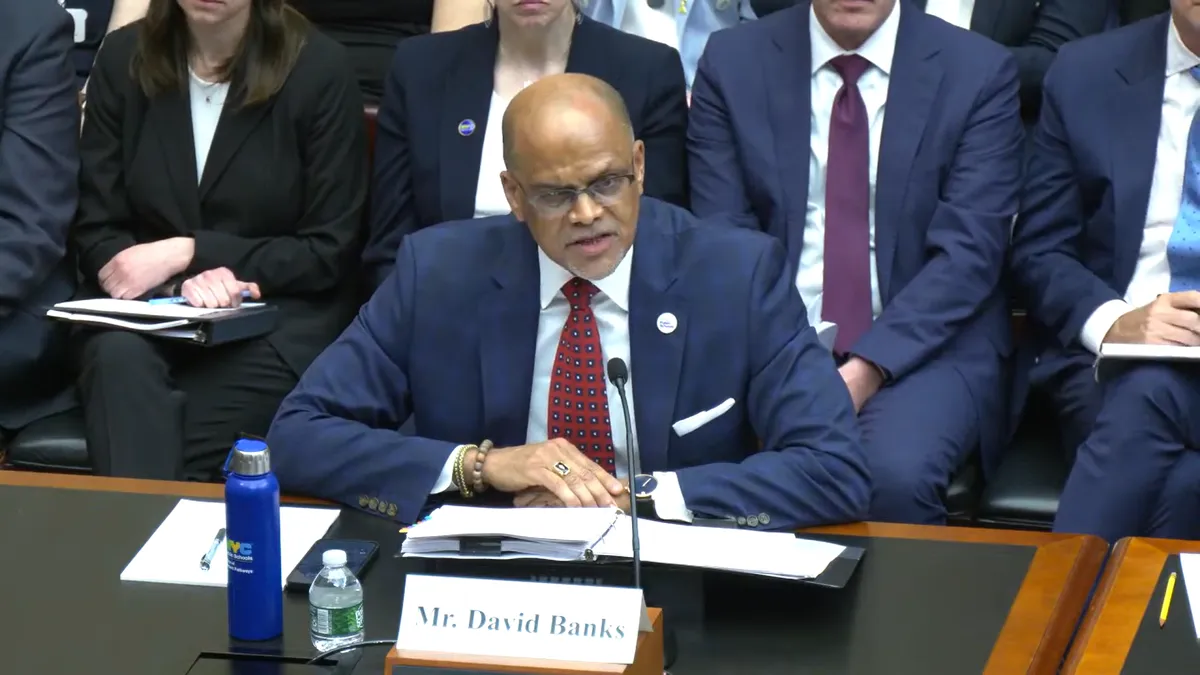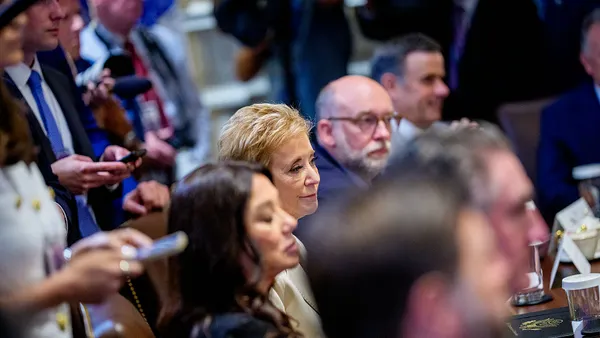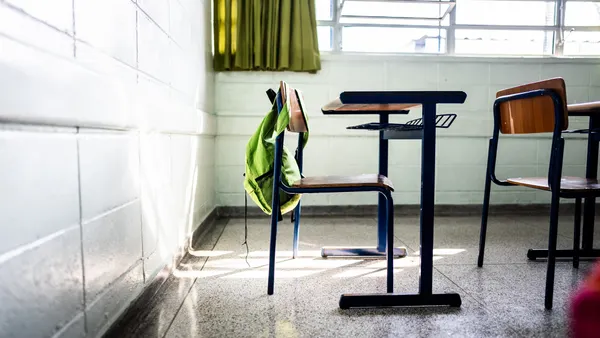Dive Brief:
-
Lawmakers agreed on the importance of addressing a spike in antisemitism in schools as the Israel-Hamas war has raged on, but they disagreed on how to address the problem during a House subcommittee hearing Wednesday.
-
Republican lawmakers pushed school leaders to discipline students and to fire administrators and staff as swiftly as possible in incidents related to antisemitism. Democratic lawmakers discussed how to balance the rights of the involved parties, as well as how to take a preventative and educational approach to the issue.
-
School leaders, while staunch in their commitment to address faith-based hate, told the subcommittee of the complexity in confronting antisemitism in school systems — and especially large ones — when union representation requires due process and state and local laws call for protecting student and sometimes teacher privacy.
Dive Insight:
The hearing, held by the House Subcommittee on Early Childhood, Elementary and Secondary Education, follows reports of increasing antisemitism and Islamophobia in schools and follows contentious hearings focused on colleges' responses to such incidents.
In Wednesday's hearing, three K-12 superintendents from large urban school districts, including New York City Public Schools Chancellor David Banks, detailed the steps they are taking to address antisemitism, including:
- Expanding hate crime curriculum.
- Setting up a reporting process for antisemitic incidents.
- Mandating anti-hate training for staff.
- Strengthening relationships with local Jewish partners.
- Organizing interfaith advisory councils.
Republican lawmakers, however, seemed dissatisfied with what they called school leaders' failure to take punitive approaches.
"Are we getting rid of any of these people, or is it just 'taking other action'?" asked Rep. Burgess Owens, R-Utah, referring to schools’ responses to staff members' acts.
Firing people, however, is not the only option, said hearing witness Emerson Sykes, a senior staff attorney with the American Civil Liberties Union.
"I think we need to think a little more creatively about how we can respond to antisemitism and root out this idea," Sykes said. "Firing may be appropriate in certain circumstances, but I think we need to think about how we can address antisemitism, change hearts and minds, make children safe, without only looking to the most punitive tool in our toolbox."
Rep. Lisa McClain, R-Mich., disagreed. "Therein lies the problem," she said. "Your ability to tolerate this behavior is completely unacceptable, and sometimes you do need to use the stick. Because disincentives work."
Democratic lawmakers spoke to the balance between protecting student and staff free speech rights with keeping educational environments safe under Title VI, the civil rights law that prohibits discrimination on the basis of race and nationality, including shared ancestry and ethnic characteristics.
"The balance between free speech and protecting students is what we're challenged by," said Rep. Mark DeSaulnier, D-Calif.
Since the Oct. 7 Hamas attack on Israel, schools have experienced a notable uptick in antisemitic and Islamophobic incidents. In response, the U.S. Department of Education has repeatedly condemned these acts and warned school leaders that they must address and prevent them.
Earlier this week, the department released a Dear Colleague Letter detailing examples of Title VI violations that the Office for Civil Rights would investigate in K-12 school settings.
"I continue to be deeply concerned by the repeated reports of antisemitic and anti-Israeli, anti-Muslim, anti-Arab, and anti-Palestinian harassment on our campuses and in our communities," said U.S. Secretary of Education Miguel Cardona in a Tuesday statement.
Cardona reminded school leaders that the department "will investigate and address any possible discrimination that causes harm to students," including under Title VI.
The department has cracked down on complaints of antisemitic and Islamophobic incidents in school settings since Oct. 7, having opened a majority of its more than 145 Title VI investigations into schools and colleges since the attack and the ensuing Israel-Hamas war.












